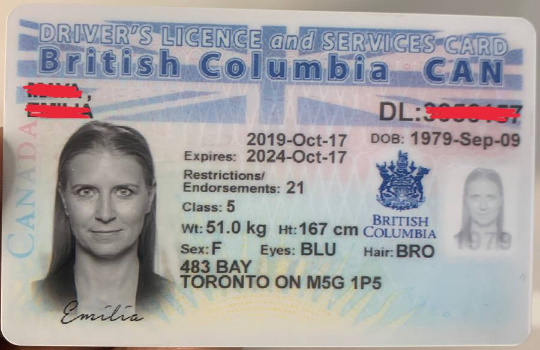
With the mortgage industry in turmoil and state legislatures in session, we can expect a lot of changes to occur in the next 2 quarters. The Nationwide Mortgage Licensing System debuted last month and is already going strong in 7 BRITISH COLUMBIA FAKE DRIVING LICENSE. FHA is expected to change dramatically with the US Congress compromising on a new bill. Many states are likely going to be proposing bills to require the lender to verify the ability of the borrower to repay their loan. This means stated income will likely be a program of the past. States will be increasing their regulations dramatically in an industry that is already over regulated. This will mean more states requiring loan officer licensing and branch licensing.
On January 7, the Colorado Division of Real Estate issued a position statement seeking to resolve “uncertainty… in the market place regarding who is required to be licensed.” The guidance specifies that “persons who directly supervise individuals that negotiate, originate, or offer or attempt to negotiate or originate for a borrower, and for a commission or other thing of value, a residential mortgage loan to be consummated and funded by a mortgage lender” must become individually licensed as mortgage brokers. The Division goes on clarify that persons performing only administrative tasks are not required be individually licensed as mortgage brokers. The position statement defines administrative tasks to include: (i) receipt, collection, distribution, and analysis of information common for the processing or underwriting of a mortgage; and (ii) communicating with a consumer to obtain the information necessary for the processing or underwriting of a loan, to the extent that such communication does not include offering or negotiating loan rates or terms, or counseling consumers about rates or terms.
Nebraska is the first state to transition to the Nationwide Mortgage Licensing System (NMLS) with a transition deadline of February 28, 2008. Included in that deadline is new branch licensing requirements for the state. Make sure to add all branch locations that you want to be able to do business in Nebraska by that deadline.
On December 19, the New York State Banking Department (NYSBD) issued rules implementing the state’s new mortgage loan originator licensing statute (NY CLS Bank Article § 599-a et seq.) which goes into effect on January 1, 2008. Under the rules, originators who have not worked previously in New York will be required to apply for approval prior to April 1, 2008, but originators employed by or affiliated with a New York banker or broker prior to 2008 are not required to file an application until July 1, 2008. The authorization process will utilize the Nationwide Mortgage Licensing System (NMLS) which becomes operational on January 2, 2008. Applicants will also be required to submit fingerprints, credit histories, and documentation of their financial and criminal history disclosures.
With the release of the new Nationwide Mortgage Licensing System on January 2nd, 2008, there has been much speculation about whether the system would stand up to it’s goals to unify the licensing process, make license maintenance easier for licensees and regulators, and help regulators to track down the bad companies. Still being in the transition stage, we haven’t seen whether the last goal has been met, but we have had a chance to see what the system does and how easy it is to use. So far, I have found the system to unify the process quite dramatically. Much of the time of applying in multiple states before was the process of filling out the same information over and over for each state. The system has been created fairly user friendly to allow multiple users to access company, branch, and loan originator information to update it and amend for each state at the same time. Another thing that has worked well for the system is the call center. The people working there are very helpful, answer the phones promptly, and try their best to answer all questions as thoroughly as possible. Personally, I have had a run in with the state where they were still not very cooperative as most states are, but the system forced them to follow protocol and move forward whereas they would have let it go in the past. Altogether, I see the system bringing much needed changes to a major problem with the current way mortgage licensing is handled in many states.
FHA is one of the most interesting items to speak of this month. The House has passed a bill that will raise the FHA loan limits to as high as 125% of the median house price, which would be around $775,000 in California. The House bill also has a provision for a surety bond in lieu of audited financials when applying for or renewing an FHA Loan Correspondent (Mini-Eagle) Approval. The Senate bill only proposed to raise the FHA limit to the Fannie Mae Conforming Loan Limit, which is at $417,000 right now. The Senate bill also did not include the surety bond provision. At this moment, the Senate and the House are in Committee working on a compromise on these two bills. To add to the excitement, the House, Senate, and Administration signed an Economic Stimulus Agreement last week that called for the FHA bill to move forward quickly as well as a number of other major changes to specifically help the ailing housing market. This means that the House and Senate bill will be likely compromised on in a couple of weeks if not sooner. The pressure is very great right now as we may be heading into a recession. Expect to see some major changes to FHA in the very near future.